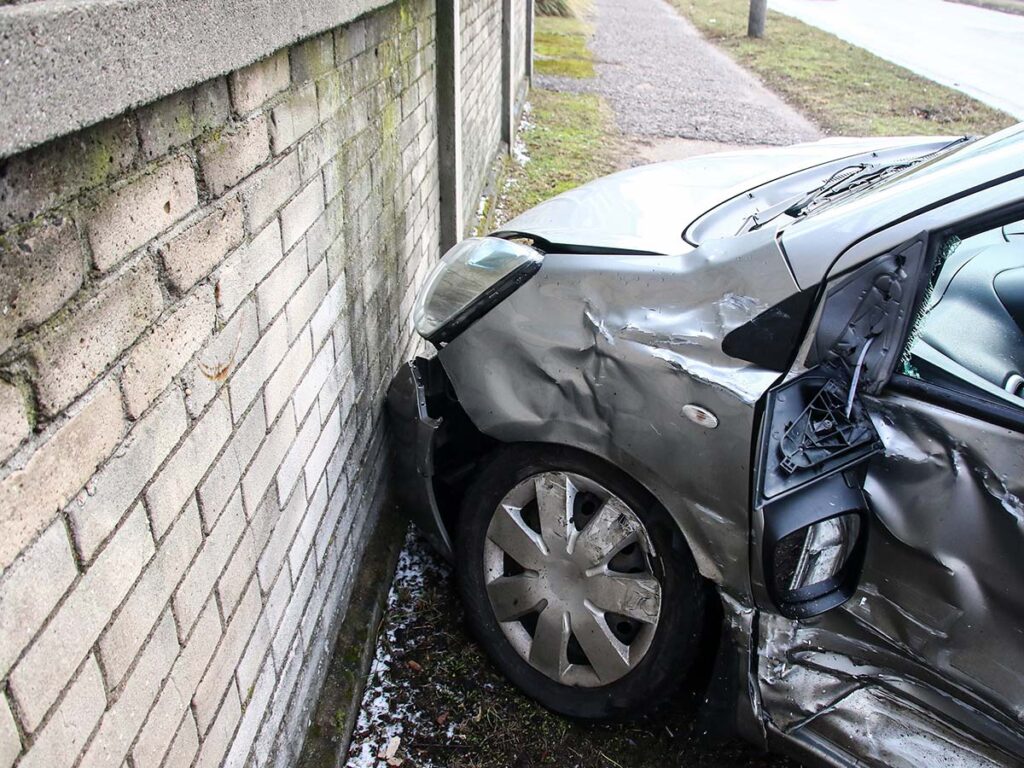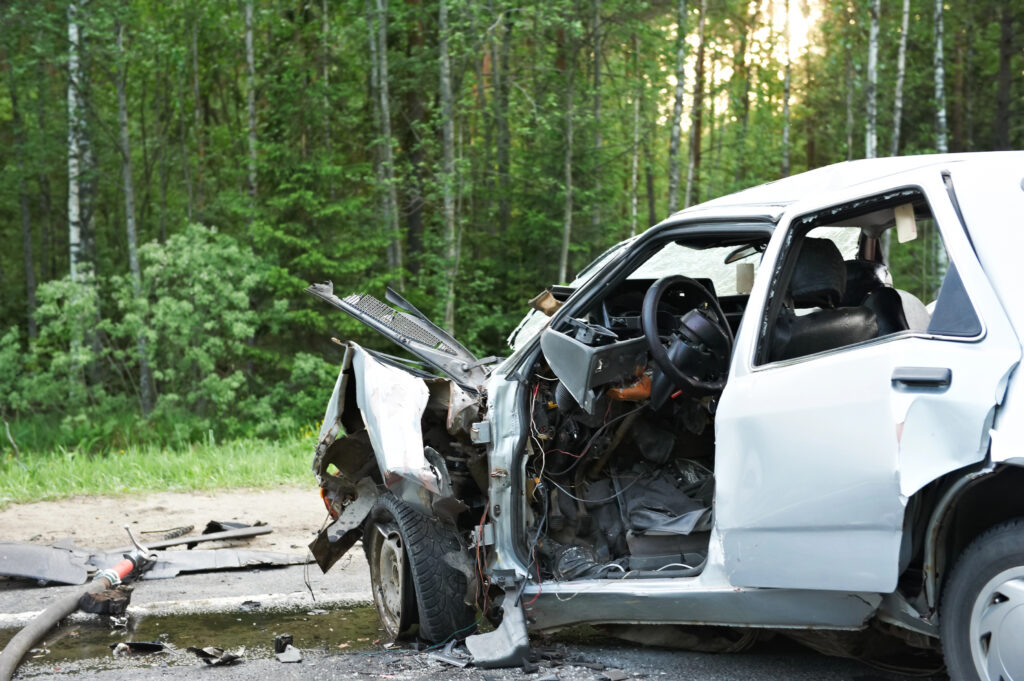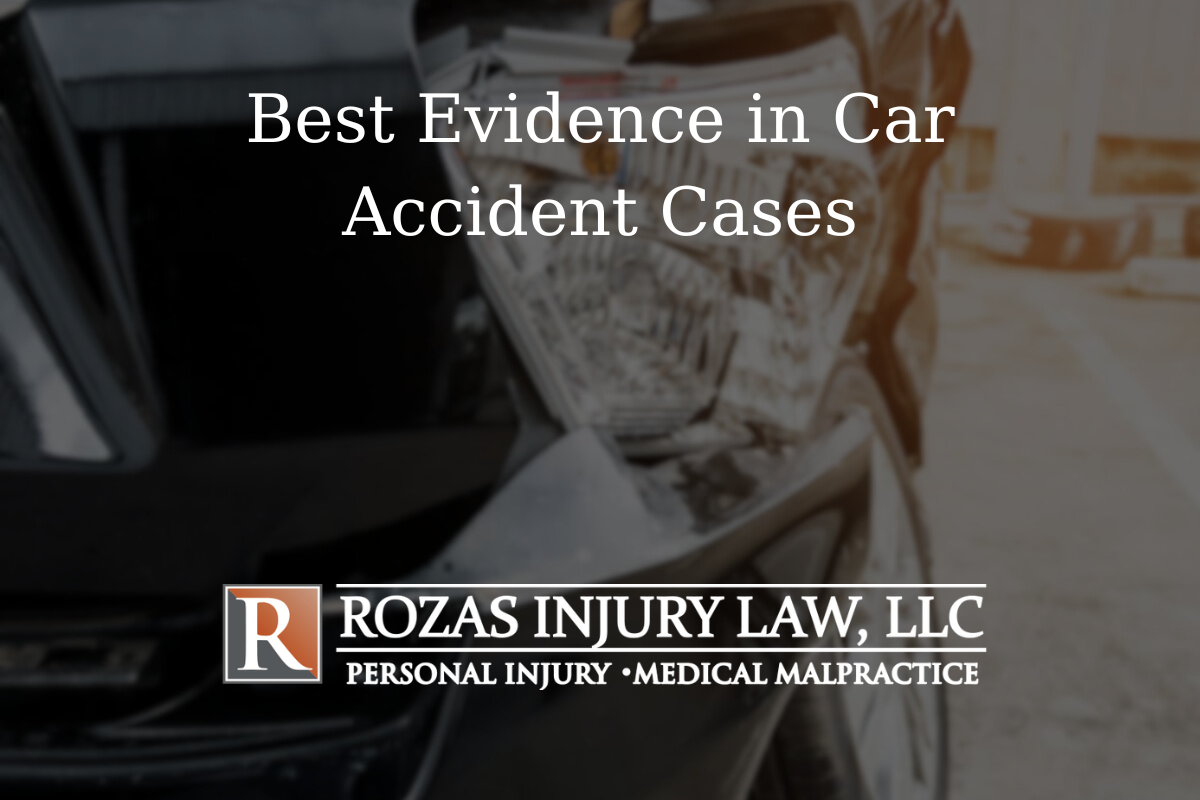When pursuing a car accident claim, the strength of your car accident evidence can make all the difference in securing fair compensation for your injuries and losses. Whether you’re filing a personal injury claim or a car accident lawsuit, having the right evidence is essential to proving fault and maximizing your settlement.
This guide will cover the best types of evidence to collect, how to establish liability, and why working with an experienced car accident lawyer can help you build a strong case.

Why Evidence Matters in a Car Accident Case
After a car accident occurs, insurance companies and legal teams will review the available evidence to determine who was at fault. The better the evidence, the stronger your claim. Without proper documentation, it can be challenging to prove negligence and recover damages for medical expenses, lost wages, and property damage.
Strong evidence can help:
- Prove how the accident happened
- Establish liability of the at-fault party
- Support claims for medical treatment and expenses
- Strengthen negotiations with insurance companies
- Provide compelling evidence in court proceedings if necessary
Types of Evidence in a Car Accident Case
1. Police Report
One of the most critical pieces of car accident evidence is the official police report. When the accident occurs, law enforcement officers document the crash scene, note any violations of traffic laws, and may even determine fault.
A police report typically includes:
- The time, date, and location of the accident
- Statements from drivers involved and witnesses
- Details about vehicle damage and skid marks
- The officer’s observations about how the accident occurred
- Any citations issued to the at-fault party
2. Photographic and Video Evidence
Photographs and videos visual evidence can provide undeniable proof of how the accident happened. Take pictures of the accident scene, vehicle damage, skid marks, and any injuries sustained. If possible, gather video evidence from nearby traffic cameras, dashcams, or surveillance footage.
3. Witness Statements
Statements from neutral third parties can significantly strengthen a car accident claim. Witnesses can provide insight into how the accident happened, confirm details about distracted driving or reckless behavior, and support your version of events.
4. Medical Records and Medical Bills
Medical treatment records and resulting medical expenses are crucial in proving the extent of car accident injuries. Keep copies of all medical records, medical bills, and prescriptions, as they demonstrate the severity of your injuries and their financial impact.
5. Accident Reconstruction Experts
In complex cases, accident reconstruction specialists or accident reconstructionists can analyze physical evidence, skid marks, and vehicle damage to determine how the crash occurred. Their reports can serve as critical evidence in a car accident lawsuit.
6. Cell Phone Records
If distracted driving was a factor, cell phone records can be used to prove that a driver was texting or making a call at the time of the crash. This type of evidence can help establish liability against the at-fault party.
7. Insurance Claims and Adjuster Reports
Insurance companies and insurance adjusters will conduct their own investigations. It’s important to provide as much evidence as possible to support your claim and counter any attempts to undervalue your settlement.

Collecting Evidence After a Car Accident
1. Document the Accident Scene
- Take detailed photographs and videos of the crash scene, vehicle damage, and visible injuries.
- Capture skid marks, road conditions, traffic signals, and any other relevant details.
- Obtain a copy of the accident report from law enforcement.
2. Gather Witness Statements
- Ask for contact information from witnesses at the accident scene.
- Record their statements while the events leading up to the accident are fresh in their memory.
3. Seek Medical Treatment
- Even if injuries seem minor, get checked by a doctor immediately.
- Keep copies of all medical records, prescriptions, and bills.
4. Request Cell Phone and Surveillance Footage
- If distracted driving is suspected, request the other driver’s cell phone records.
- Check if nearby businesses or traffic cameras recorded the accident.
5. Consult an Experienced Attorney
- An experienced car accident lawyer can help with gathering evidence, negotiating with insurance companies, and handling court proceedings if necessary.
Seeking Compensation for Your Car Accident Claim
If you were injured in an auto accident, you may be eligible for compensation for:
- Medical expenses, including hospital bills, rehabilitation, and medications
- Lost wages due to time off work
- Property damage to your vehicle
- Pain and suffering
- Future medical treatment and long-term care
An experienced attorney can guide you through the legal process and fight for a fair settlement.
Get Legal Help for Your Car Accident Case
At Rozas Injury Law, LLC, we understand the challenges crash victims face when dealing with insurance companies and legal claims. That’s why we emphasize gathering the Best Evidence in Car Accident Cases to build a strong claim. Our legal team is committed to helping you seek the compensation you deserve.
Contact us today for a free consultation. Call (225) 343-0010 to speak with an experienced car accident attorney. Let us help you build a strong case and protect your rights.
FAQs
1. What is the most important evidence in a car accident case?
The most critical evidence includes the police report, witness statements, video evidence, and medical records. These can help establish liability and strengthen your personal injury case.
2. Can I file a car accident claim without a police report?
Yes, but a police report is strong supporting evidence. Without it, you may need additional proof, such as video footage or witness statements, to validate your claim.
3. How can accident reconstruction help my case?
Accident reconstruction experts analyze physical evidence like skid marks and vehicle damage to determine how the accident happened. Their findings can serve as compelling evidence in court.
4. Should I accept the first settlement offer from the insurance company?
No, insurance companies often offer low settlements to minimize payouts. An experienced attorney can negotiate on your behalf to secure a fair settlement.
5. How long do I have to file a car accident lawsuit in Louisiana?
In Louisiana, the statute of limitations for filing a personal injury case after a car accident is typically one year from the date of the accident. It’s important to act quickly to preserve your right to compensation.




